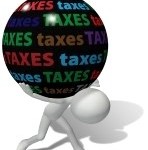 Here are some of the most common questions:
Here are some of the most common questions:
- Do I need a business number? – You do not need a business number to report business income on a T2125 Form. This form records your business income and expenses as part of your personal return. And you need to pay CPP premiums if you earned more than $3,500.
- Can I have losses? – You can have losses on your business that can be used to offset other income. If the losses exceed your income from other sources, you have a non-capital loss which can be carried forward to years when you have more income.
- Do I need receipts? – Keep really good records. Self-employed Canadians are more likely to be audited, so make sure you keep your receipts and other documentation to support your business expenses. And the expenses must have been incurred to help you earn your income.
- Do I really need to fill out a T2125? – Even if you are student with a summer job that paid you as a contractor, you should still report the income on a T2125 Form and claim reasonable business expenses. It may be tempting to enter the income on Line 104 (other employment income) but this is not correct.
- Can I use a flat rate for business mileage? – If you use your car for business, you must keep a mileage logbook. There is a new simplified method for self-employed taxpayers but you are required to keep a logbook for a year before you can use it. If you do not have a logbook and claim business mileage, your claim may be reduced or disallowed.
- Do I have to make installments? – If you have tax owing in any two of the last three tax years, the Canada Revenue Agency will request that you make quarterly instalments rather than an annual payment. Failing to make instalment payments could result in interest charges.
- Do I need a GST number? – If your annual revenues are more than $30,000, you have to register for the GST/HST. However, even if your revenues are less than this, it is usually advantageous to register so that you can claim input tax credits for the GST/HST you pay.


No Comments